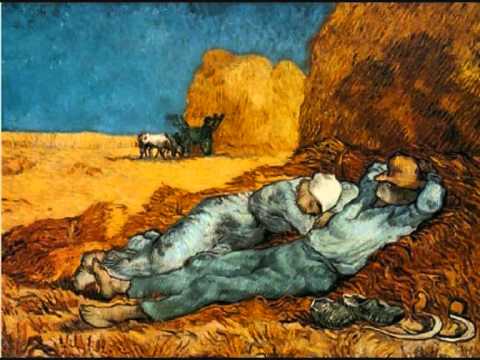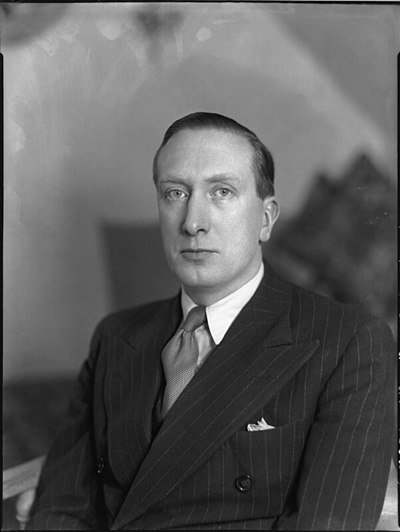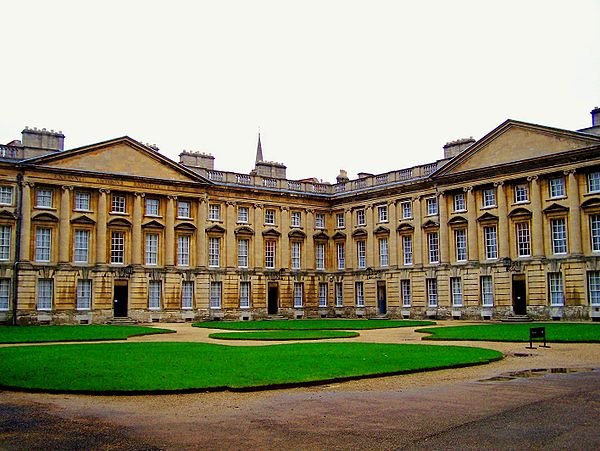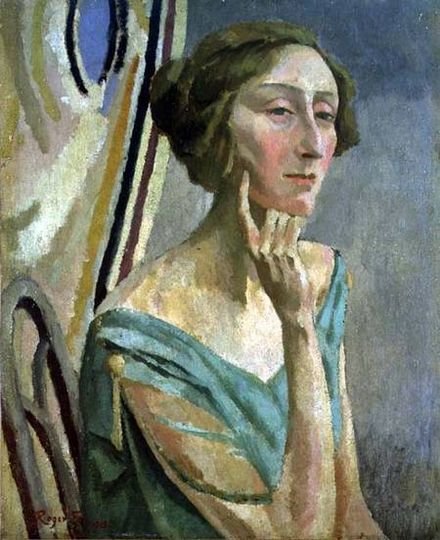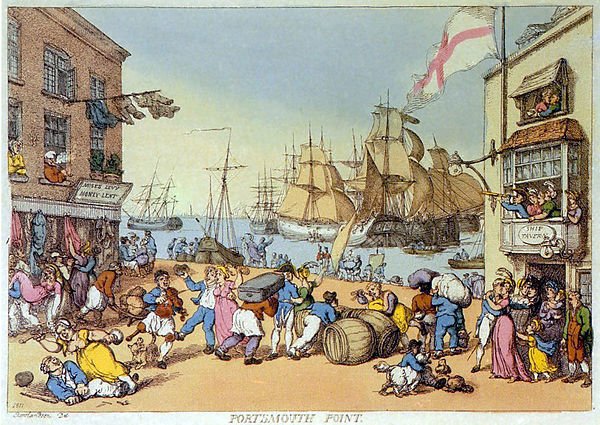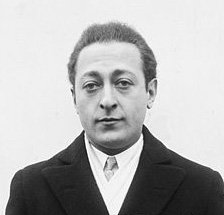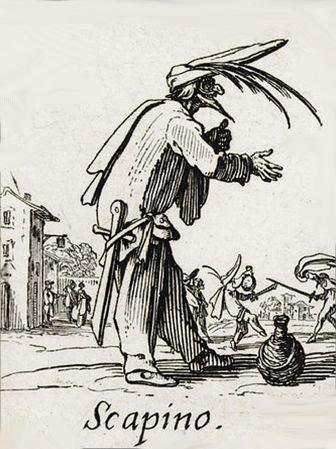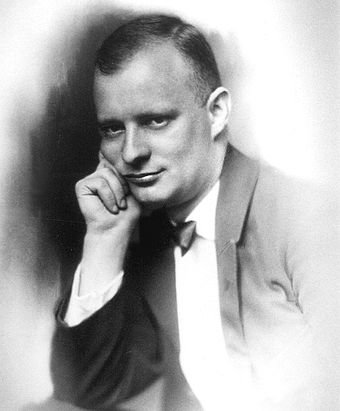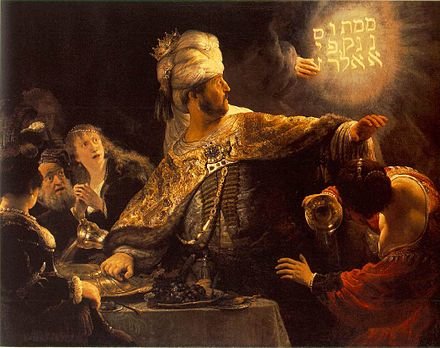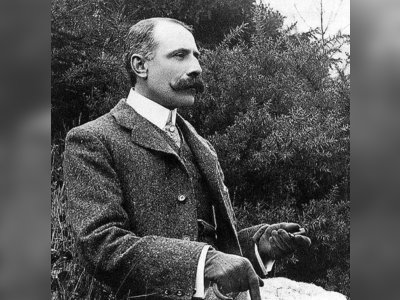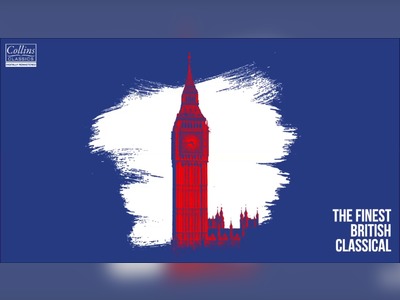British Heritage
Remember, Cherish, Learn.
beta
William Walton Composer
Contribution of William Walton to British Heritage.
Sir William Walton, one of England's most prominent composers of the 20th century, made significant contributions to British heritage through his diverse and influential body of work. Born in Oldham, Lancashire, in 1902, Walton's musical journey began early as he showcased his talents as a singer and composer from a young age. His long and illustrious career spanned sixty years, during which he composed music in various classical genres, ranging from film scores to opera.
One of Walton's most renowned works is "Façade," a collaboration with poet Edith Sitwell. Initially considered modernist and controversial, "Façade" later became a popular ballet score. Throughout the 1920s, Walton's association with the Sitwell siblings, especially Sacheverell Sitwell, provided him with a nurturing cultural environment, shaping his musical identity.
In his middle years, Walton moved to the Italian island of Ischia with his wife Susana. While his works were criticized as old-fashioned during the 1950s, they experienced a resurgence in critical acclaim in his later years, elevating his reputation as a composer. Despite being a slow and meticulous worker, Walton's impact on British music was significant.
His compositions, including "Belshazzar's Feast," "Viola Concerto," "First Symphony," and the British coronation anthems "Crown Imperial" and "Orb and Sceptre," continue to be performed frequently in the 21st century. Walton's legacy has been immortalized through numerous recordings and remains an integral part of the British musical heritage.
Born into a musical family, William Walton's early exposure to music paved the way for his remarkable journey as a composer. His father, Charles Alexander Walton, was a musician who trained at the Royal Manchester College of Music, while his mother, Louisa Maria Turner, was a former singer. Recognizing his musical talent, Walton received piano and violin lessons, although he excelled more as a singer.
In 1912, Walton's potential was acknowledged, and he became a probationer chorister at Christ Church Cathedral School in Oxford. There, he caught the attention of the Dean of Christ Church, Dr. Thomas Strong, and renowned composer Sir Hubert Parry, who recognized his musical gifts and encouraged his development.
Walton's academic journey led him to become an undergraduate at Christ Church, Oxford, at the young age of sixteen. While at the university, he came under the influence of Hugh Allen, a dominant figure in Oxford's musical life. Allen introduced Walton to modern music, including the works of Stravinsky, Debussy, and Sibelius, which left a profound impact on the budding composer.
Spending considerable time studying scores in the university library, Walton immersed himself in the intricacies of orchestration and composition. This dedication to his craft would later define his distinctive musical style.
During his time at Oxford, Walton befriended poets such as Roy Campbell, Siegfried Sassoon, and, most importantly, Sacheverell Sitwell. After leaving the university, he was invited to stay with the Sitwell siblings—Osbert, Edith, and Sacheverell—in their London home. This pivotal moment marked the beginning of a fruitful collaboration between Walton and Edith Sitwell, which led to the creation of their groundbreaking work, "Façade."
"Façade," first performed in 1923, combined Edith's verses, recited through a megaphone behind a screen, with Walton's accompanying music played by a small ensemble. Initially met with mixed reviews, the work later gained popularity and was adapted into a ballet choreographed by Frederick Ashton.
In the years following "Façade," Walton's reputation as a composer continued to grow. His "Portsmouth Point" overture, inspired by a painting of the same name, gained recognition at the Proms in 1927. Additionally, his Viola Concerto (1929) propelled him to the forefront of British classical music, receiving high praise from critics and audiences alike.
One of his most significant achievements came in 1931 with the composition of "Belshazzar's Feast." Initially intended as a small-scale work, Walton expanded it into a grand choral cantata. Its premiere was met with overwhelming success, establishing Walton as a prominent composer of his time.
During World War II, Walton contributed to the war effort by composing music for propaganda films and radio dramas. While he was initially dismissive of his film scores, some, like the score for Laurence Olivier's "Henry V," have become classics.
In the post-war period, Walton's musical style evolved, and he composed his First Symphony, which premiered in 1935 and garnered international acclaim. His march, "Crown Imperial," composed for the coronation of King George VI in 1937, added to his recognition and popularity.
Sir William Walton's legacy endures as a prominent figure in British musical history. His diverse body of work, ranging from film scores to concert pieces, showcases his mastery of various classical genres. Noted for his slow and meticulous approach to composition, Walton's works have stood the test of time and continue to be performed worldwide.
From his groundbreaking collaboration with Edith Sitwell in "Façade" to the grandeur of "Belshazzar's Feast" and the expressive beauty of the Viola Concerto, Walton's music captures the essence of his era while leaving a lasting impact on British heritage. Through his contributions to the world of classical music, Sir William Walton's name remains etched in the annals of British cultural history, securing his place among the country's greatest composers.
One of Walton's most renowned works is "Façade," a collaboration with poet Edith Sitwell. Initially considered modernist and controversial, "Façade" later became a popular ballet score. Throughout the 1920s, Walton's association with the Sitwell siblings, especially Sacheverell Sitwell, provided him with a nurturing cultural environment, shaping his musical identity.
In his middle years, Walton moved to the Italian island of Ischia with his wife Susana. While his works were criticized as old-fashioned during the 1950s, they experienced a resurgence in critical acclaim in his later years, elevating his reputation as a composer. Despite being a slow and meticulous worker, Walton's impact on British music was significant.
His compositions, including "Belshazzar's Feast," "Viola Concerto," "First Symphony," and the British coronation anthems "Crown Imperial" and "Orb and Sceptre," continue to be performed frequently in the 21st century. Walton's legacy has been immortalized through numerous recordings and remains an integral part of the British musical heritage.
Early Life and Musical Beginnings
Born into a musical family, William Walton's early exposure to music paved the way for his remarkable journey as a composer. His father, Charles Alexander Walton, was a musician who trained at the Royal Manchester College of Music, while his mother, Louisa Maria Turner, was a former singer. Recognizing his musical talent, Walton received piano and violin lessons, although he excelled more as a singer.
In 1912, Walton's potential was acknowledged, and he became a probationer chorister at Christ Church Cathedral School in Oxford. There, he caught the attention of the Dean of Christ Church, Dr. Thomas Strong, and renowned composer Sir Hubert Parry, who recognized his musical gifts and encouraged his development.
Academic Pursuits and Influences
Walton's academic journey led him to become an undergraduate at Christ Church, Oxford, at the young age of sixteen. While at the university, he came under the influence of Hugh Allen, a dominant figure in Oxford's musical life. Allen introduced Walton to modern music, including the works of Stravinsky, Debussy, and Sibelius, which left a profound impact on the budding composer.
Spending considerable time studying scores in the university library, Walton immersed himself in the intricacies of orchestration and composition. This dedication to his craft would later define his distinctive musical style.
The Collaboration with the Sitwells
During his time at Oxford, Walton befriended poets such as Roy Campbell, Siegfried Sassoon, and, most importantly, Sacheverell Sitwell. After leaving the university, he was invited to stay with the Sitwell siblings—Osbert, Edith, and Sacheverell—in their London home. This pivotal moment marked the beginning of a fruitful collaboration between Walton and Edith Sitwell, which led to the creation of their groundbreaking work, "Façade."
"Façade," first performed in 1923, combined Edith's verses, recited through a megaphone behind a screen, with Walton's accompanying music played by a small ensemble. Initially met with mixed reviews, the work later gained popularity and was adapted into a ballet choreographed by Frederick Ashton.
Continued Success and Notable Compositions
In the years following "Façade," Walton's reputation as a composer continued to grow. His "Portsmouth Point" overture, inspired by a painting of the same name, gained recognition at the Proms in 1927. Additionally, his Viola Concerto (1929) propelled him to the forefront of British classical music, receiving high praise from critics and audiences alike.
One of his most significant achievements came in 1931 with the composition of "Belshazzar's Feast." Initially intended as a small-scale work, Walton expanded it into a grand choral cantata. Its premiere was met with overwhelming success, establishing Walton as a prominent composer of his time.
War and Aftermath
During World War II, Walton contributed to the war effort by composing music for propaganda films and radio dramas. While he was initially dismissive of his film scores, some, like the score for Laurence Olivier's "Henry V," have become classics.
In the post-war period, Walton's musical style evolved, and he composed his First Symphony, which premiered in 1935 and garnered international acclaim. His march, "Crown Imperial," composed for the coronation of King George VI in 1937, added to his recognition and popularity.
Legacy and Impact on British Heritage
Sir William Walton's legacy endures as a prominent figure in British musical history. His diverse body of work, ranging from film scores to concert pieces, showcases his mastery of various classical genres. Noted for his slow and meticulous approach to composition, Walton's works have stood the test of time and continue to be performed worldwide.
From his groundbreaking collaboration with Edith Sitwell in "Façade" to the grandeur of "Belshazzar's Feast" and the expressive beauty of the Viola Concerto, Walton's music captures the essence of his era while leaving a lasting impact on British heritage. Through his contributions to the world of classical music, Sir William Walton's name remains etched in the annals of British cultural history, securing his place among the country's greatest composers.
- William Waltonen.wikipedia.org
